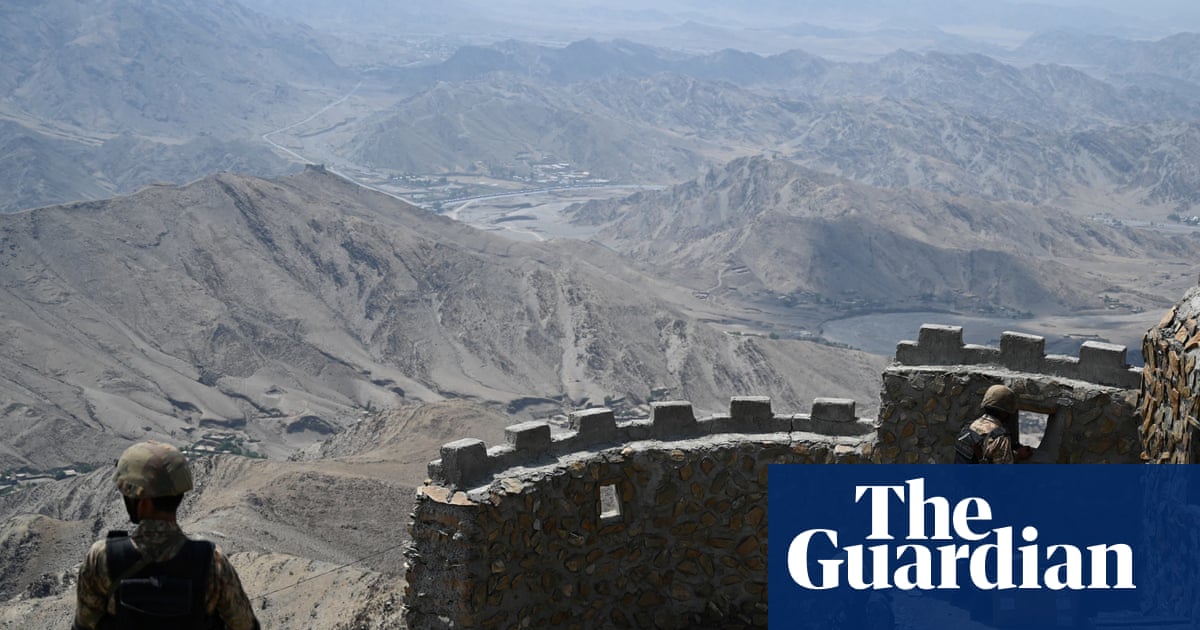Heavy clashes erupt along Pakistan-Afghanistan border | Afghanistan

Intense clashes erupted along the Pakistan-Afghanistan border on Saturday night after an attack by the Taliban on Pakistani military posts.
This escalation comes after a Pakistani airstrike in Kabul this week, as reported by security officials from both nations.
Taliban forces launched armed reprisals against Pakistani troops, alleging that Islamabad had conducted airstrikes on Afghan territory, according to senior Taliban officials from various provinces. They claimed to have seized two Pakistani border posts in the southern province of Helmand, which was confirmed by local authorities.
Pakistani security officials acknowledged clashes at several border locations, stating they were responding forcefully. “Tonight, Taliban forces began firing at several border points. We retaliated with artillery at four locations along the border,” a Pakistani government official told the Guardian.
“We will not tolerate any aggression from the Afghan Taliban within our territory. Pakistani forces responded with heavy fire, effectively targeting several Afghan border posts,” the official added.
The Pakistan army used artillery, tanks and both light and heavy weaponry in their counterattacks.
On Thursday, two explosions were reported in the Afghan capital and another in southeastern Afghanistan. The Taliban-run defence ministry subsequently accused Pakistan of “violating its sovereignty” in connection with the attacks.
Analysts said recent days showed just how deep the border tensions run.
Michael Kugelman, a South Asia analyst based in Washington DC, said: “Intensifying cross-border attacks on Pakistani forces, unusually intense Pakistani strikes in Afghanistan, and Taliban retaliations have created a perfect storm for trouble. If you throw in the fact that Afghanistan doesn’t recognise the border, as well as the proliferation of disinformation about the crisis, it all makes for a precarious situation.”
Islamabad has expressed growing impatience with Kabul, refraining from confirming or denying involvement in the airstrikes.
While Islamabad has not explicitly claimed responsibility for the attacks, it has called on Kabul to cease harbouring the Tehreek-e-Taliban Pakistan (TTP), which is accused of killing hundreds of Pakistani soldiers since 2021 and is believed to have received combat training in Afghanistan, sharing ideological ties with the Afghan Taliban.
“Fortunately this crisis, serious as it is, is poised to de-escalate sooner rather than later. The Taliban lack the capacity to fight the Pakistani military head-on, and once the retaliations appease public anger, they’re likely to recede,” said Kugelman.
Lt Gen Ahmed Sharif Chaudhry, the Pakistani military spokesperson, acknowledged reports of the strikes, and said: “To protect the lives of the people of Pakistan, we are doing, and will continue to do, whatever is necessary.” He urged Afghanistan to prevent its territory from being used for terrorism against Pakistan.
Imtiaz Gul, a security analyst based in Islamabad, said: “I think what we have seen in these few hours is a logical conclusion of the tensions that had been brewing up between the two countries, particularly after the kinetic attacks on TTP hideouts and the continuous refusal of the Afghan regime to take demonstrable conclusive action against the TTP, which is spearheading the terrorist attacks in Pakistan.”
Relations between Afghanistan and Pakistan have been strained in recent months due to Islamabad’s accusations that Kabul is harbouring TTP, which carried out attacks on Pakistan.
Kugelman believes for Pakistan “the risk is that its recent strikes in Afghanistan will galvanise TTP to carry out reprisals, which could invite further and perhaps more intense Pakistani operations in Afghanistan.” He said: “And then the cycle could play out again. There are no winners or easy long-term solutions here.
“If we see de-escalation now, we’re nowhere near being out of the woods.”
The two countries share a nearly 2,600km (1,600 miles) rugged and mountainous border known as the Durand Line.
Gul said: “I think Pakistan’s patience had been wearing thin. And that’s why they basically decided to take direct action themselves against TTP leaders. And now, obviously, the Taliban would say that it was a retaliatory attack, retaliatory action.”
Source link

